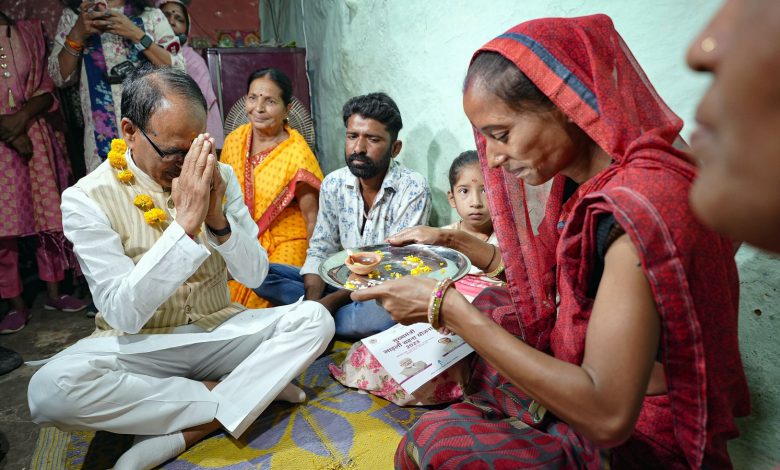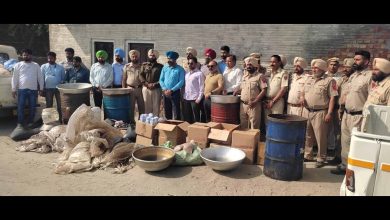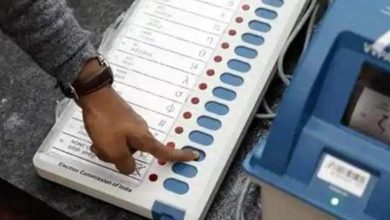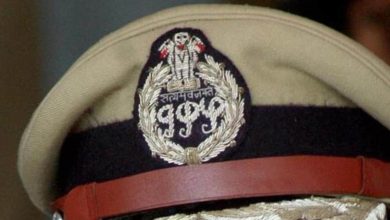“Ladli Behna”, a financial scheme is at the heart of MP govt’s outreach to women

BHOPAL: Billboards promising to triple the monthly aid to eligible women under an ongoing welfare programme run Madhya Pradesh’s ruling Bharatiya Janata Party (BJP) has sparked hope: More money to feed the kids, a well-stocked kitchen and, perhaps, that occasional new sari. PREMIUM Bhopal, Jun 01 (ANI): Madhya Pradesh Chief Miner Shivraj Singh Chouhan pays respects to a woman as he goes door-to-door to dribute acceptance letters to the eligible sers of Chief Miner’s Ladli Behna Scheme, at Durga Nagar in Bhopal on Thursday. (ANI Photo)(Office of Shivraj Twitter) For the government, the scheme has fuelled a different set of political expectations: The government hopes that the scheme’s impact would help overshadow the crisis at hand — anti-incumbency, simmering anger over price rise and seemingly widespread fatigue with a government in office since 2003. In June, the Shivraj Singh Chouhan government rolled out a monthly dole disbursed under the “Mukhyamantri Ladli Behna” scheme that provided ₹1,000 to women between the ages of 23 and 60 years who meet certain financial criteria. Recently, the government announced it would gradually scale up the amount, ensuring women get ₹3,000 a month in their bank accounts. The aid amount is not big but beneficiaries said it helps them meet expenses without having to dip into the monthly budget or their meagre savings. Some find it liberating as it gives them a taste of financial independence. But most of all, it is the expectation that the government will triple the amount that that overrides concerns about the inadequacy of the amount even in the backdrop of skyrocketing prices. “We are confident that the chief miner will fulfil the promise of giving us more money. The amount will make a difference in our lives,” said Priyanka Hotle whose husband drives an autorickshaw. Money is usually short and it had helped when the small family was provided a house under the “PM (prime miner) Awas Yojna” for which they need to pay ₹1600 every month to the government. That is why the promise of an additional ₹2000 to Hotle means hope. “Additional money means I can pay for my child’s school fees without having to burden my husband,” she said. The child, a three-and-a-half-year-old, was recently admitted to a private school in the hope that better education will open up the world for him. At a time when the state government, readying for the year-end assembly election, is embellishing its report card with details of all its welfare schemes and pro-people programmes, the “Ladli Behna” scheme is the most talked about among them. The ₹8,000 crore scheme covers 1.25 lakh women across the state who have less than 5 acre of land or an annual income of less than ₹2.5 lakhs. It is easily the state government’s best bet to woo women voters who play a pivotal role in deciding the fate of candidates. As in other poll-bound states, the BJP is focussing on women voters in MP with the hope that it will tilt the scales in its favour; women make up for about 48% of the electorate in the state. The scheme is not about politics but more about parity, says chief miner (CM), Shivraj Singh Chouhan. Chauhan asserts that the aid has little to do with electoral politics and was borne out of his desire to end the disparity between genders, which he encountered even at home. “I have witnessed disparity between boys and girls since my childhood, even in my own family. I saw how girls were not given the love that boys were given and there was a perception that it would be better if girls weren’t born,” he said speaking to media persons in Bhopal. Chauhan got the idea to provide financial aid to women when an old woman dismissed his views about gender parity, pointing out how families found marrying off women a liability. “Once, while I was in a village during a mass-marriage programme, I stood in for the chief guest and said people should treat boys and girls equally. An old woman stood up and said I was talking big (but) who would pay for the girl’s marriage. I realised that until this problem is solved, there is no point in lecturing people about equality of gender,” he said. The scheme, which the CM says is for the empowerment of women, has triggered a contest of sops between political parties. People aren’t complaining, of course. With the Congress party making promises of free units of power and jobs in addition to a monthly allowance for women, the state government has sharpened its outreach ensuring that the process to enrol for the scheme is free from red tape. “We had to reger at the anganwadi (women and children care centre in villages), then go to the bank for KYC (know your customer formalities) and the money began to come into our account,” said Meena Ahir at an anganwadi in Bhopal’s Arera Hills area. Ahir is aware of the Congress’s promises and, like most of her neighbours and friends, has also filled out the forms given out the party to enrol for the opposition party’s schemes. In Sehore, an hour’s drive from Bhopal, there are many stories about the impact of the “Ladli Behna” scheme but these come with footnotes about rising food prices, how expensive cooking gas has become and the overall slump in the employment sector. Vishkanya Prajapati who was provided special food packets and vaccines during her pregnancy and post-delivery and money at her daughter’s birth said the aid is insufficient to meet the spiralling costs of everyday items. “There are no jobs here after the sugar and soyabean factories shut down, so our men travel to Gujarat for work, breaking up families,” she said. Expert’s takePolitical commentator Manisha Priyam said schemes tailor-made for women have worked in the past for the Shivraj Singh government, but there is no telling if the Ladli scheme will help buck anti-incumbency in the upcoming elections. “Madhya Pradesh has been known for such schemes. Earlier there was the Ladli Lakshmi scheme and Chouhan cultivated his image as a mama (uncle). It worked for him in the past, but something in between did happen and he could not capitalise on the image. The loss of support in the previous election (2018) showed there is a decline in his popularity,” she said. While party leaders are confident that sops for women, particularly those schemes that put money in their hands will be a game-changer, Priyam says interventions could indicate the government is trying to address “structural issues such as a wider agrarian crisis.” “There is a need to understand why people are moving away…after all, he was elected much before the BJP was elected nationally in 2014,” she said.







